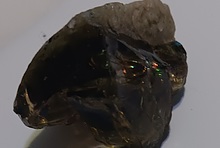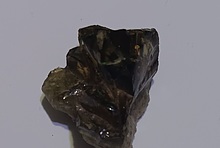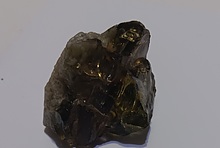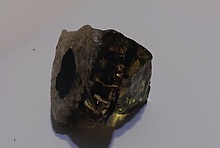Home PageAbout MindatThe Mindat ManualHistory of MindatCopyright StatusWho We AreContact UsAdvertise on Mindat
Donate to MindatCorporate SponsorshipSponsor a PageSponsored PagesMindat AdvertisersAdvertise on Mindat
Learning CenterWhat is a mineral?The most common minerals on earthInformation for EducatorsMindat ArticlesThe ElementsThe Rock H. Currier Digital LibraryGeologic Time
Minerals by PropertiesMinerals by ChemistryAdvanced Locality SearchRandom MineralRandom LocalitySearch by minIDLocalities Near MeSearch ArticlesSearch GlossaryMore Search Options
The Mindat ManualAdd a New PhotoRate PhotosLocality Edit ReportCoordinate Completion ReportAdd Glossary Item
Mining CompaniesStatisticsUsersMineral MuseumsClubs & OrganizationsMineral Shows & EventsThe Mindat DirectoryDevice SettingsThe Mineral Quiz
Photo SearchPhoto GalleriesSearch by ColorNew Photos TodayNew Photos YesterdayMembers' Photo GalleriesPast Photo of the Day GalleryPhotography
╳Discussions
💬 Home🔎 Search📅 LatestGroups
EducationOpen discussion area.Fakes & FraudsOpen discussion area.Field CollectingOpen discussion area.FossilsOpen discussion area.Gems and GemologyOpen discussion area.GeneralOpen discussion area.How to ContributeOpen discussion area.Identity HelpOpen discussion area.Improving Mindat.orgOpen discussion area.LocalitiesOpen discussion area.Lost and Stolen SpecimensOpen discussion area.MarketplaceOpen discussion area.MeteoritesOpen discussion area.Mindat ProductsOpen discussion area.Mineral ExchangesOpen discussion area.Mineral PhotographyOpen discussion area.Mineral ShowsOpen discussion area.Mineralogical ClassificationOpen discussion area.Mineralogy CourseOpen discussion area.MineralsOpen discussion area.Minerals and MuseumsOpen discussion area.PhotosOpen discussion area.Techniques for CollectorsOpen discussion area.The Rock H. Currier Digital LibraryOpen discussion area.UV MineralsOpen discussion area.Recent Images in Discussions
Improving Mindat.orgHardness of steel overstated ?
29th Jun 2015 00:00 UTCReiner Mielke Expert
29th Jun 2015 01:44 UTCSteve Federico

29th Jun 2015 07:04 UTCReinhardt van Vuuren
29th Jun 2015 07:47 UTCDavid Von Bargen Manager
http://www.daytonlamina.com/sites/default/files/dayton_tech-balancing.pdf
29th Jun 2015 14:23 UTCReiner Mielke Expert
Cobalt alloy bits will drill through cast iron unless there happens to be something other than iron embedded in it. I can see coated steel being harder but then it is not the steel that is hard but the coating. I am thinking that part of the problem is in converting vickers hardness to Mohs, it is not a straight forward linear relationship. I suspect that those reported high hardness steels were not actually testing on minerals but mathematically converted to Mohs.
Hello David,
I can see if particles of carbides are embedded in the steel that it would scratch quartz, but then that is kind of like saying steel with particles of diamond embedded in it is hard steel isn't it? I suppose it all depends on the definition of "steel". To me it must be a homogeneous alloy and not a mixture to count as "steel".
29th Jun 2015 14:32 UTCDavid Von Bargen Manager
29th Jun 2015 14:40 UTCReiner Mielke Expert
You are absolutely correct however there is nothing ambiguous about something being able to scratch a smooth quartz surface, either it can or cannot.
29th Jun 2015 14:49 UTCReiner Mielke Expert

29th Jun 2015 15:03 UTCSteven Kittleson
Cronidur 30 steel alloy contains nitrides and is rated as one of the harder steel alloys.
TTFN and LLAP

29th Jun 2015 15:12 UTCWayne Corwin
29th Jun 2015 15:32 UTCReiner Mielke Expert
My Cobalt drill bits will drill through Cronidur 30.
29th Jun 2015 15:39 UTCReiner Mielke Expert
By absolute hardness do you mean as tested with a Sclerometer? The trouble is that the hardness of steel is not determined using a Sclerometer.

29th Jun 2015 15:44 UTCKelly Nash 🌟 Expert
29th Jun 2015 16:59 UTCReiner Mielke Expert

29th Jun 2015 18:08 UTCKelly Nash 🌟 Expert
29th Jun 2015 21:11 UTCReiner Mielke Expert
Modern drill bits us tungsten carbide or diamonds. Other than a matrix, they gave up using steel for that a long time ago.

30th Jun 2015 03:31 UTCDoug Daniels

30th Jun 2015 04:55 UTCJason Bennett
Have you tried scratching any of your different steels with a quartz point Reiner? That might be where the conjectured hardness values come from...
Jason

30th Jun 2015 11:53 UTCBela Feher Expert
Ferrite, austenite: HRC = 10-15, HV = 196-213, Mohs = ca. 3-3.5
Pearlite, upper bainite: HRC = 40-45, HV = 392-446, Mohs = ca. 4.5
Lower bainite: HRC = 58-60, HV = 653-697, Mohs = ca. 5.5
Martensite: HRC = 65-66, HV = 832-865, Mohs = ca. 6
30th Jun 2015 14:45 UTCReiner Mielke Expert
I am not using any drill just dragging a drill bit across the face of a quartz fragment.
Hello Jason,
Why would one expect a different result from quartz on steel rather than steel on quartz? Here is one site (there are others) for example that claims hardness 7-8 for steel http://www.jewelrynotes.com/the-mohs-scale-of-hardness-for-metals-why-it-is-important/. How they determined that I don't know.
Thank you Bela! That would seem to settle this but one could still argue that the conversion to mohs is incorrect? However I think Mindat is not likely to get a donation from this thread. LOL
30th Jun 2015 15:44 UTCJolyon Ralph Founder
I have long been of the opinion that assigning arbitrary mohs values to items such as "a steel file" or a "copper penny" is just asking for trouble as there is so much variation (not least that copper pennies are now something completely different).
Mohs testing should be used based on known constants and none of these things are constant.
The best thing we can say from this is "Do not use metal objects for hardness tests unless they are part of a known and calibrated testing set"
30th Jun 2015 16:38 UTCReiner Mielke Expert
30th Jun 2015 16:47 UTCDavid Von Bargen Manager

30th Jun 2015 17:06 UTCWayne Corwin
If what you have been using works, keep them with you. ;-)
30th Jun 2015 17:30 UTCReiner Mielke Expert
30th Jun 2015 17:55 UTCJolyon Ralph Founder
30th Jun 2015 18:40 UTCReiner Mielke Expert
That is true, but do you check every glass of water you drink to see if it has arsenic in it before you drink it? I have at times assumed the file I was using was softer than quartz without first determining if it was because I was not expecting it to not be, just like you would not expect your glass of water to have arsenic in it. So if in fact a file can never be harder than quartz then I will never have to worry about it. Of course you on the other hand can probably not assume anything about your glass of water LOL.

1st Jul 2015 03:41 UTCJason Bennett
I was thinking along the lines of Cr-doped steel. From my understanding (and I may be completely wrong) the idea of Chrome steel is that the Cr oxidises at the surface of the steel forming atomic-scale layers from Cr-oxide, something like Eskolaite maybe (http://www.mindat.org/min-1411.html) which has a hardness 8-8.5. Looks like most Cr minerals have a high hardness.
Scratching a surface of Cr-steel would be like scratching a surface of Cr-oxide, hence the high hardness. If you tried the other way around, then the sharp/angular point you are using might shear at the surface, and you are trying to scratch with 'fresh' steel, which has hardness much less as you point out above.
For something that is not a single crystal, or homogenously amorphous, I always thought that testing for hardness was a moot point (as Jolyon mentions) because you are not testing for hardness of the mineral, but strength of the intragranular bonds.
Jason
1st Jul 2015 09:16 UTCJolyon Ralph Founder
But this uncertainty probably rules out using a steel file for this kind of test unless you have previously checked it with a known piece of quartz.
Moral of the story - keep a piece of feldspar in your pocket.
1st Jul 2015 10:49 UTCDavid Von Bargen Manager
Brinell test blocks go to 550 (vickers 580)
Rockwell C HRCN 63 (Vickers 772)
Test file - Vickers 832
http://www.flexbar.com/shop/pc/Hardness-Testers-and-Accessories-c26.htm
http://www.minersoc.org/pages/Archive-MM/Volume_28/28-206-718.pdf
quartz 1100-1200 Vickers.
Powder metal.
https://nanosteelco.com/images/uploads/resources/NSB_72_tech_data.pdf
Hardness Vickers 1 1096 HV
1st Jul 2015 13:56 UTCReiner Mielke Expert
I doubt if that is a factor. For example the only thing that keeps aluminum from rapidly corroding in air is the instant formation of a protective thin layer of corundum but that does not make it scratch resistant.
Thanks David, That just goes to show that steel is not harder than quartz.

2nd Jul 2015 05:13 UTCJason Bennett
I guess it's back to the drawing board, as long as the board isn't quartz, and the pen isn't steel.
Jason

2nd Jul 2015 05:39 UTCRyan Allen
2nd Jul 2015 14:20 UTCReiner Mielke Expert
If anyone can settle this question it sure sounds like you will be the one. Looking forward to what you find out. Thanks
7th Jul 2015 00:40 UTCDon Saathoff Expert
Don S

16th Jul 2015 06:16 UTCRyan Allen
16th Jul 2015 14:17 UTCReiner Mielke Expert
I think that settles it. Now I don't have to worry about that anymore.:-)




Mindat.org is an outreach project of the Hudson Institute of Mineralogy, a 501(c)(3) not-for-profit organization.
Copyright © mindat.org and the Hudson Institute of Mineralogy 1993-2024, except where stated. Most political location boundaries are © OpenStreetMap contributors. Mindat.org relies on the contributions of thousands of members and supporters. Founded in 2000 by Jolyon Ralph.
Privacy Policy - Terms & Conditions - Contact Us / DMCA issues - Report a bug/vulnerability Current server date and time: April 19, 2024 03:19:19
Copyright © mindat.org and the Hudson Institute of Mineralogy 1993-2024, except where stated. Most political location boundaries are © OpenStreetMap contributors. Mindat.org relies on the contributions of thousands of members and supporters. Founded in 2000 by Jolyon Ralph.
Privacy Policy - Terms & Conditions - Contact Us / DMCA issues - Report a bug/vulnerability Current server date and time: April 19, 2024 03:19:19











